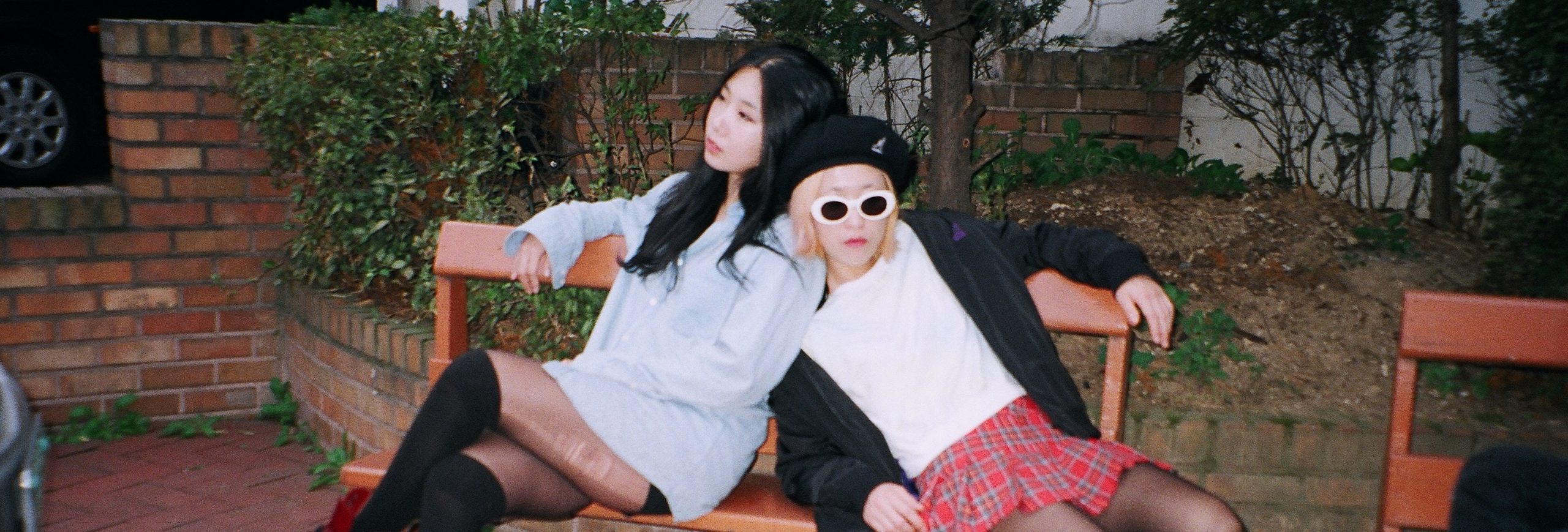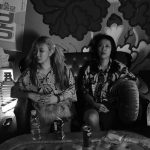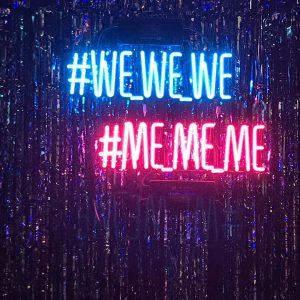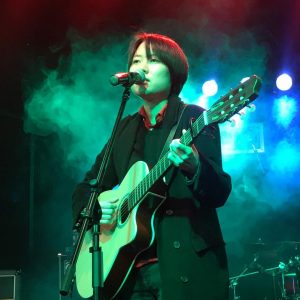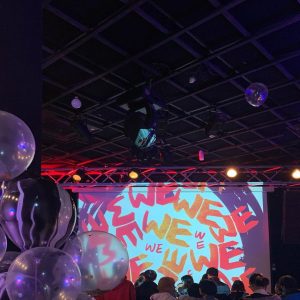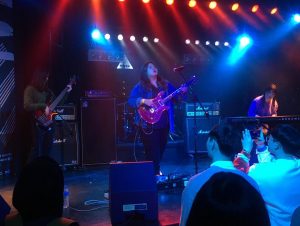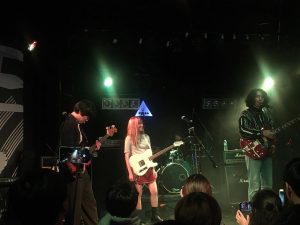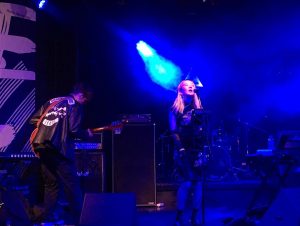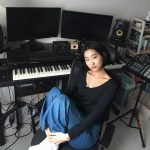Korea’s independent music scene grows every day along with its female artists presence. Women also belong in K-Indie!
We can all agree that, these days, the biggest music phenomenon has been K-Pop. Korea’s popular music has been increasing in strength and space all over the world, but it also narrows the way for other music genres and artists to reach the general public — especially the ones who doesn’t belong in this K-Pop universe. And it’s in this context of limited visibility, that women has been making their ways: inside Korean independent music — which goes beyond the relaxing melodies and soft voices usually credited to the, so called, K-Indie.
In an environment characterized by authorial music, the freedom to create and produce their work is a rather natural and welcome aftermath. To the solo artist Jane B, that was the aspect that made her leave behind the envy she felt about the idols who influenced her through her teenagehood. “I realized their hardships, such as not [being] free in their music and real life. So, as I wanted to do my own music freely, I naturally became a independent artist”, explains the singer.
According to Jiwon, Billy Carter’s vocalist, working autonomy also reflects on artists’ image and behavior. Apart from the K-pop industry (in which women should mandatorily present to public a whole package including a slim body, a standard-obeying face, a barely-challenging personality and an essentially innocent persona), these artists find, within the independent scene, the possibility to work with their most truthful realities. To Billy Carter, that also means detaching themselves from the norms that rule the mainstream: “we don’t really care about the ‘femininity’ in the way some (actually a lot of) people expect from female performers.”, tells the lead singer.
- Jane B
- Billy Carter
- Nieah
However, musical independence accompanies a series of responsibilities and complications. “Independent artists do what agencies do”, explains Jane B. The solo artist’s logic concerns to the fact that, without big companies and agencies to manage these bands and singers, they need to play an active role in creation, production and advertising process themselves. “You must achieve everything on your own. From production and releasing to networking with artists from the same scene”, says Nieah, solo artist who contributes to K-R&B since 2013.
Jane B tells that one of the biggest obstacles of being a part of alternative scene leans on the financial relationship between artist and music. The singer also adds that she has to minister singing classes in order to complement her income. However, “if the artist is able to overcome that problem, it seems really appealing”. She points out.
You might also like: LGBTQIA+ representation grows in the Korean indie scene
Not even sexism can stop the women in K-Indie
In addition to the hard time they go through while trying to turn music into their main source of income, many women in the scene also need to face the reality of a society ruled by men. “There are so many talented female musicians in Korea but most of people with power in the music business, are men and I can see the strong connection amongst them. Even though they are not trying to exclude female musicians, it seems quite natural to see men bonding with one another more easily and firmly in a patriarchal society”, explains Jiwon. Nieah, for instance, assigns the scenario as an outcome of the contrasting generational values which permeate Korea (and the world) nowadays. She believes that whenever there is a complete change of generations, sexism which, according to her has been diminishing as time goes by, will be definitely extinct.
To Chris Park, from Korean Indie (Instagram account dedicated to promote independent Korean music), misogyny and harassment that women face, within the indie scene, does not differ from what can be found inside of K-pop, other genres or in society as a whole. To him, the problem happens also due to the socialization of people who perpetuate these kinds of behaviors. “This has been changing in Korea, but not everyone grows up and matures in the same pace”.
On the other hand, while that doesn’t happen, other groups have been articulating themselves in order to improve the working environment in the scene. As many other partakers in the independent music surroundings, Jina, guitar player for Billy Carter, sees those issues created by misogyny as a reflection of what women confront in any other professional areas. For what concerns the indie scene, the answer to this situation comes in the form of support and activities organized amongst those said professionals.
As an example, the band contributed to the coordination of WEWEWE music festival, which aimed to promote these artists’ work and offered space to the development of networking between female musicians, writers, activists, directors and many other interested professionals. The event — part of the cultural innovation project from the Youth Participation Platform of the Korean Ministry of Gender Equality and Family — happened on December 8th, the same day U2 performed in Korea, but that didn’t affect the experience of WEWEWE.
The partnership’s initiative between the bands and the Ministry itself, points to a acknowledgement of the necessity to make independent scene more receptive towards women. “A few days ago, Jina and I had a chance to meet many female experts of different fields, pharmacists, movie business people. Some of them told us that they’d been boycotting indie live music and stopped coming to live gigs because of the misogyny and sexism in the music scene made by male indie musicians”, tells Jiwon.
- WEWEWE
Made by women for women and focused on improving the environment in order to be more receptive to female presence, that’s just how important WEWEWE was.
According to Jiwon, every moment of the event was priceless and they were able to share about their experiences of being discriminated and treated unfairly, only because they are women. They could also showcase their work to indie music supporters who also believe in the value of gender equality. “We felt we were strongly connected”, she shares.
Networking makes the world go ‘round
Just like WEWEWE, festivals play a role of essential importance within the indie scene. From promoting the exchange between bands and artists, to the creation of a vital network, these events allow artists to increase their reach and to cross paths with scenes from different countries. That was the case to Billy Carter, which in 2019 has reached a high level of proeminence by accomplishing a line-up in Rock In Rio.
It was through the networking in Zandari Festa (a festival that aims to connect artists, industry and audience of all nationalities) that the band, which has been on the road for eight years, was invited to cross the globe and become one of the main attractions of the Asian music-themed Rock Street in Rock In Rio 2019.
Jiwon and Jina describe their passage through the event with the same passion they have experienced with the Brazilian audience. “It was beautiful and people were so nice and friendly. And I fell in love with Caipirinha!” expresses Jiwon. She also tells that “most of all, it was a huge honour to play with Andreas from the Sepultura, it was the epic moment!”. The band’s guitar player, Jina, complements: “It was an honor to be with all those awesome people and I really hope to be there again someday. It was the best festival experience!”.
The band had been to Rock In Rio between October 3rd and 6th, having their friend Bomi back at the drums. Together, they had the opportunity to show, each day, their music to around 100,000 people — the festival’s average estimated audience.
What has changed and what is yet to change
In a general view, independent Korean music has been through some adaptation moments after the birth of K-pop. The genre leaned mainly on television promoting, which has orientated music consuming for a good share of the population. Therefore the live music concert circuit, made by independent music and led many artists to success around the 70s and 80s, lost its prestige against the industry’s logic performed by the musical genre that became popular afterwards.
Initially, not even new technologies development has supported independent music’s strength. Probably because, as it happened with said scene, these technologies were also passing through some adaptation and still showed some limitation. However, with the increasing and enhancement of online social networking, its possibilities not only grew but also provided an environment in which independent music conquered access to many new possibilities. K-pop still rises, but K-indie scene has just learned to organize itself in this new era: there are YouTube channels dedicated exclusively to the scene, SNS accounts that promote these artists, and the good old live gigs that have returned at its full speed to Korean streets, pubs and universities.
Nonetheless, in order to keep indie music strong and productive, it is necessary to have more than just space and platforms. Again, similarly to how it works amongst festivals and networks created within them, collectiveness is of intrinsic importance. “Artists, musicians and bands should support each other and continue to try and raise the scene higher”, summarizes Chris Park. Depending on the women of K-Indie, that vision could be the nearest future: “I believe there are people looking in the same direction and we’ll keep fighting for the better environments and women’s rights”, concludes Jiwon.
+
If you got interested on knowing our interviewees and other K-Indie acts, going beyond the material that lo-fi playlists can offer, we have a dope playlist. Women also belong in K-Indie: Press play!
Article by Bea| K4US Writing Team
www.k4us.com.br | Do not remove without credits
 Português
Português English
English 한국어
한국어